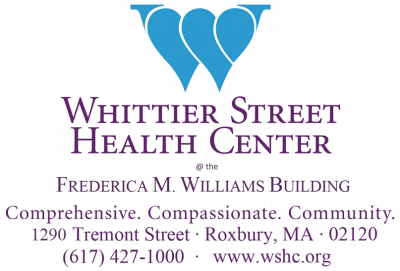Whittier Street Health Center Stresses Importance of Eye Exams
BOSTON, July 26, 2022 (Newswire.com) - Whittier Street Health Center, a community health center with a mission to serve as a center of excellence that provides high-quality and accessible health care and social services that achieve health equity, social justice, and the economic well-being of a diverse patient population, is emphasizing the importance of regular eye exams for all ages.
Similar to regularly scheduled primary care and dental appointments, routine vision check-ups can detect early signs of disease and help find solutions for children, seniors and everyone in between.
Often, vision issues with children go undetected, so parents should be on alert if their child closes one eye when reading or watching television, begins to avoid activities that require reading, rub their eyes often, and/or are struggling with school work. All these signs point to the need for an eye examination.
On the other end of the age spectrum, it's important to have a complete eye check-up every year or two after age 65 for age-related diseases, such as macular degeneration, diabetic retinopathy, glaucoma, or cataract. Recent studies also indicate that untreated vision impairment in older adults has been linked to dementia.
Regardless of age, there are a number of ways to keep vision healthy, beginning with a diet plentiful in vegetables and fruits, and fish that is rich in omega-3 fatty acids, such as salmon, tuna, and halibut. Maintaining a healthy weight will also decrease the risk of developing diabetes and high blood pressure, both of which can lead to eye diseases and vision loss.
Ultraviolet (UV) rays can do damage even on cloudy days, so sunglasses are a must outdoors, as are safety glasses and goggles when playing sports or performing dangerous activities at work or home like using power tools.
Smoking increases the risk of developing a number of eye diseases; quitting is advised.
It's vital to know family eye health history since some eye diseases are hereditary; this information should be shared with an eye specialist.
Resting eyes - particularly if much time is spent staring at a computer, tablet, or phone screen - is important. Use the 20-20-20 rule; every 20 minutes, look away from the screen and focus about 20 feet forward for 20 seconds to help reduce eyestrain.
"Many vision problems can be prevented if caught early, so it's imperative to be proactive with taking care of your eyesight," said Frederica M. Williams, president and CEO of Whittier Street Health Center. "Regular appointments with an eye doctor will help identify any changes to your eyesight - that in combination with a healthy diet and lifestyle can go a long way toward ensuring that your eyes are in check!"
PR Contact: Nicole Joy Hales, nhales@prfirst.com
Source: Whittier Street Health Center
